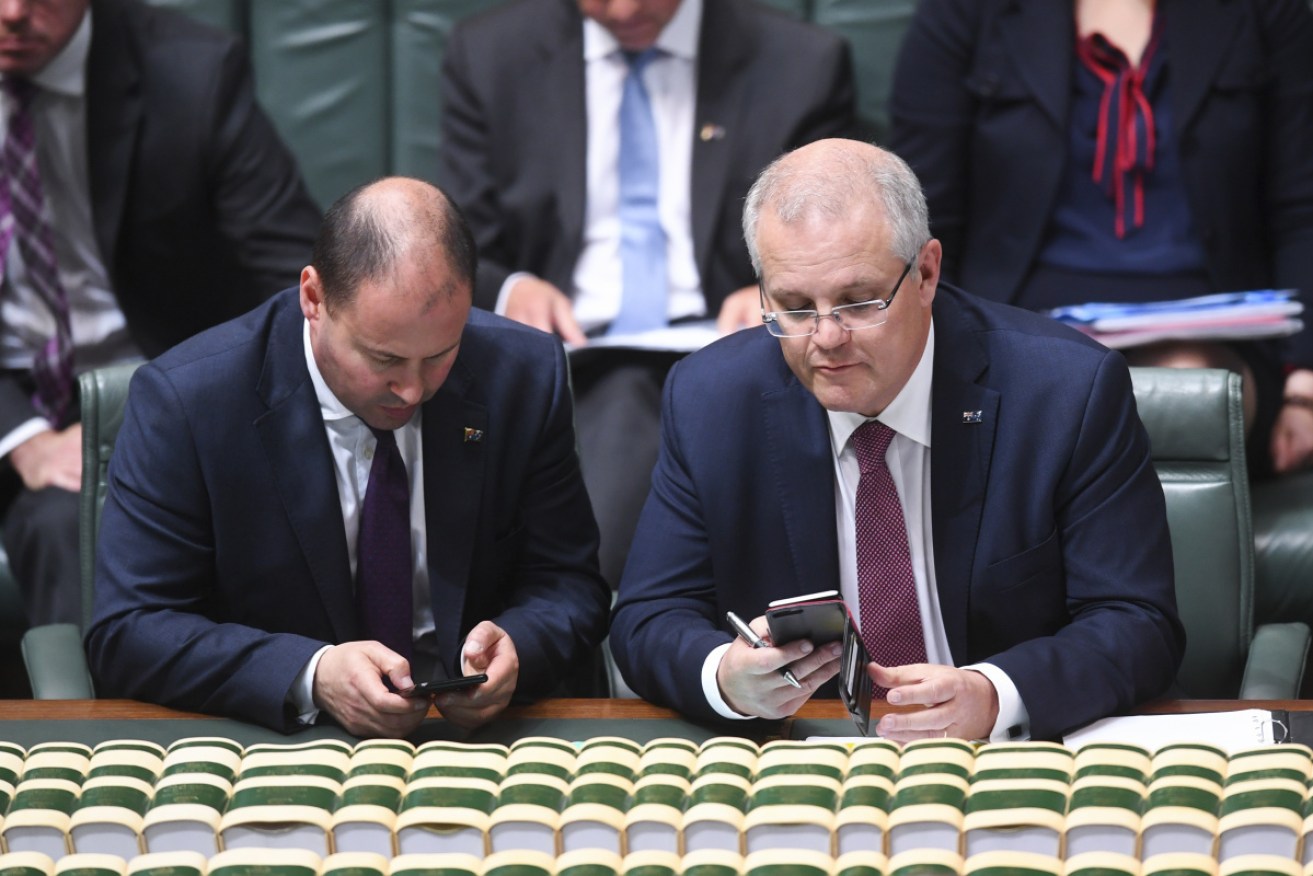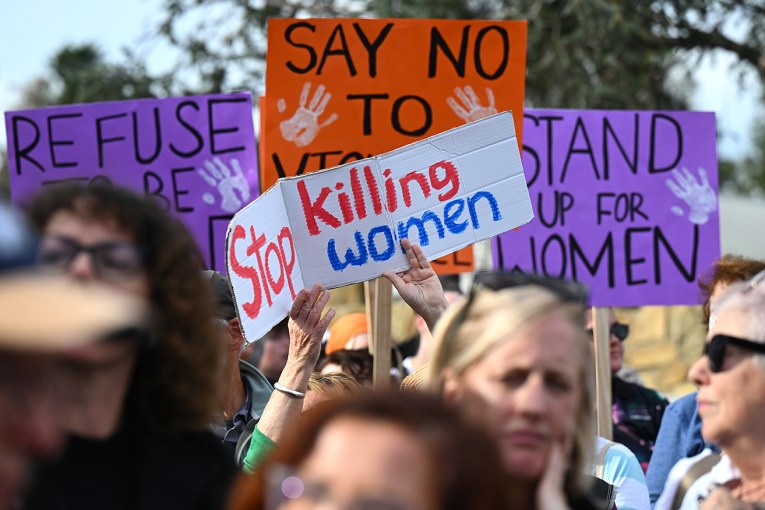In-principle agreement sets scene for encryption bill approval


Treasurer Josh Frydenberg and Prime Minister Scott Morrison check their potentially encrypted messages on Tuesday. Photo: AAP
Police will be able to crack the code of encrypted communications used by terrorists, pedophiles and serious criminals under laws now likely to pass Parliament this week.
Labor and the Coalition have reached an in-principle agreement over the legislation after trading barbs condemned as a “new low” in the national security debate.
Despite concerns the changes could open “back doors” on the internet that will make Australia more vulnerable, the major parties reached a compromise although the Greens remain opposed to the changes.
Because the laws apply only to people believed to be engaged in “serious offences” they will not apply to politicians who are known to be enthusiastic users of encrypted communications or everyday Australians using apps, including WhatsApp.
The Assistance and Access #Encryption bill is on the Senate notice paper for tomorrow, meaning the government thinks it will pass the House today. Who's going to cave first, @AustralianLabor or @LiberalAus? #Auspol #LoseLose #Greens pic.twitter.com/tOUTsXqK8u
— Senator Jordon Steele-John (@SenatorJordon) December 3, 2018
“This is a game changer for law enforcement,” Attorney-General Christian Porter said.
“The difficulty now is that terrorists are communicating to the tune of up to 95 per cent using encrypted text applications like Wickr or WhatsApp and we have been unable to get into those communications.”
Mr Porter conceded the government had agreed to give ground but would not agree to Labor’s suggestion state police should not be able to access encrypted apps.
“And what Labor wanted us to agree to on Monday, which we refused to agree to, was taking out all state police forces,” Mr Porter said.
“That would have let a ridiculous situation emerge where the federal police could compel a technological company to … make good on a warrant for an online child sex offence, but a state police force couldn’t have the same notice helping them investigate an actual physical offence by a pedophile ring.
“Now that would have been absolutely absurd. We’ve held ground on the important thing and given ground where we could.”

Bret Walker SC says the politicisation of the bill by Peter Dutton was a ‘new low’.
While the compromise was welcomed, Australia’s former top terrorism law monitor Bret Walker SC said he was dismayed at how politicised Home Affairs Minister Peter Dutton had made the debate.
“I actually think it is urgent. It has been urgent for years. But I am critical of people using so-called urgency when they themselves have been responsible for the area for years,” he told The New Daily.
“I think it’s terrible that ministers are now saying that the opposition is somehow protecting terrorists. That’s among the most irresponsible political rhetoric in this area since I’ve been involved in it.
“And it represents a new low in a proper, principled, co-operative approach to legislation in this area.”
Shadow attorney general Mark Dreyfus insisted the ALP had also forced the Coalition to concede ground.
“The changes include limiting the application of the powers in this bill to only serious offences, properly defining key terms in the bill, and requiring a “double-lock” authorisation process for technical capability notices,” Mr Dreyfus said.
Mr Dreyfus also criticised Mr Dutton’s decision to “politicise” the debate by suggesting Labor was soft on terrorists.
“I want to issue a call to the government – the trashing of bipartisan process and politicisation of national security that has occurred over the past month must never happen again,” he said.
“There is nothing more important than keeping Australians safe – the government must remember that.”








